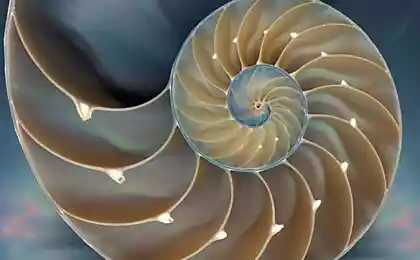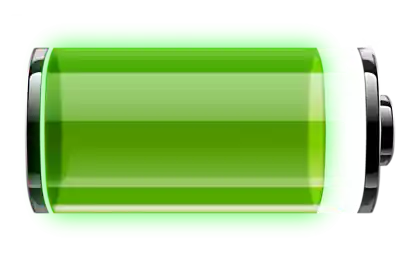617
AHI battery: battery that runs on salt water
Award Lemelsona, $ 500,000, annually awarded to inventors, this year went to Jay Whitacre (Jay Whitacre), scientist and professor of the College of Engineering at Carnegie Mellon University, for his aqueous hybrid ion battery (Aqueous Hybrid Ion (AHI) battery), recognized as a reliable , environmentally friendly and cost-effective energy storage system.
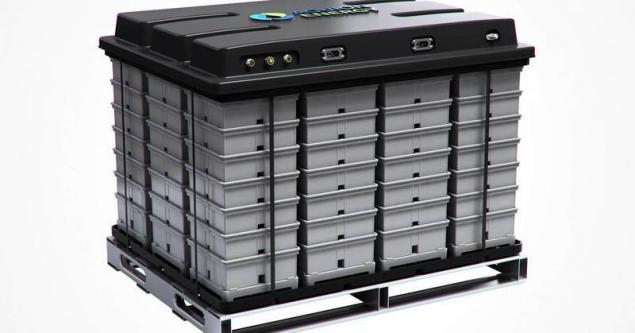
This is the first of its kind in the battery, which is used in conjunction with systems producing solar and wind power, it is able to store a significant amount of energy at a low cost per joule and is designed to work around the clock.
AHI battery developed using abundantly available and inexpensive resources, including water, sodium and carbon, can help reduce dependence on fossil fuels and make sustainable energy a viable alternative to them.
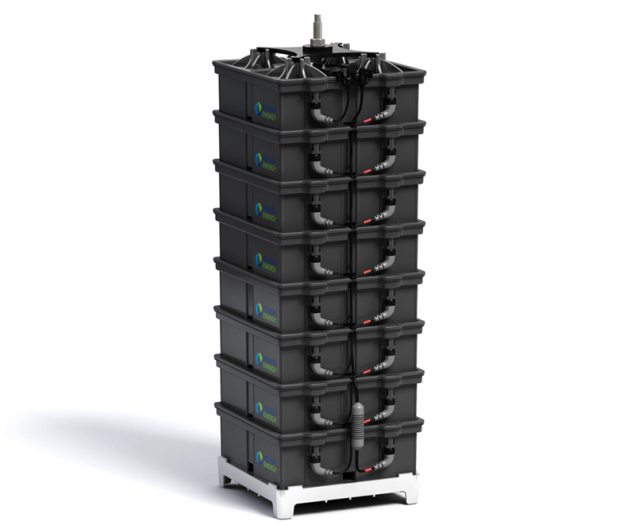
The company, which was founded by Whitacre, Aquion Energy, a fully scaled up its production and commercialized batteries, using in many places, global distribution channels and installation, including Australia, California, Germany, Hawaii, Malaysia and the Philippines.
"Our technology is based on a simple idea: in order to meet the challenges of the world's growing energy needs and increase the use of renewable energy, we need a large-scale energy storage system, which offers high performance, safe, sustainable and cost-effective
. Our founder, Professor Jay Whitacre, has set itself such a task and found a simple and elegant solution that addresses the 200-year-old technology: the battery on the basis of sea water. The company has implemented this idea in a patented hybrid-ion process, the unique salt electrolyte battery technology. Using abundant, non-toxic materials and modern manufacturing techniques make affordable our batteries able to assume
global energy storage challenge. "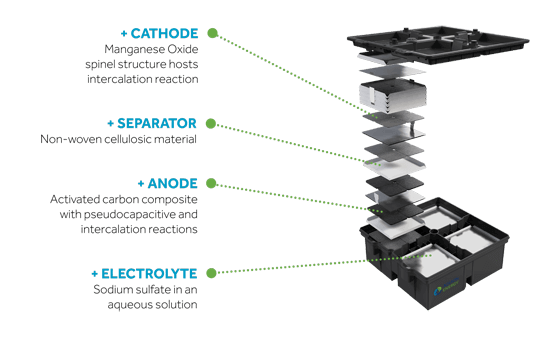
How to describe the representatives of the company "a unique water gibridoionnaya battery consists of an electrolyte - salt water, the cathode of manganese dioxide, carbon composite anode, a separator made of synthetic cotton. Battery uses non-corrosive reaction at the anode and cathode materials to prevent wear. As a result, the chemical reaction on the basis of water has become a key for the non-toxic and not flammable product that is safe to handle and for the environment. "

This is the first of its kind in the battery, which is used in conjunction with systems producing solar and wind power, it is able to store a significant amount of energy at a low cost per joule and is designed to work around the clock.
AHI battery developed using abundantly available and inexpensive resources, including water, sodium and carbon, can help reduce dependence on fossil fuels and make sustainable energy a viable alternative to them.

The company, which was founded by Whitacre, Aquion Energy, a fully scaled up its production and commercialized batteries, using in many places, global distribution channels and installation, including Australia, California, Germany, Hawaii, Malaysia and the Philippines.
"Our technology is based on a simple idea: in order to meet the challenges of the world's growing energy needs and increase the use of renewable energy, we need a large-scale energy storage system, which offers high performance, safe, sustainable and cost-effective
. Our founder, Professor Jay Whitacre, has set itself such a task and found a simple and elegant solution that addresses the 200-year-old technology: the battery on the basis of sea water. The company has implemented this idea in a patented hybrid-ion process, the unique salt electrolyte battery technology. Using abundant, non-toxic materials and modern manufacturing techniques make affordable our batteries able to assume
global energy storage challenge. "

How to describe the representatives of the company "a unique water gibridoionnaya battery consists of an electrolyte - salt water, the cathode of manganese dioxide, carbon composite anode, a separator made of synthetic cotton. Battery uses non-corrosive reaction at the anode and cathode materials to prevent wear. As a result, the chemical reaction on the basis of water has become a key for the non-toxic and not flammable product that is safe to handle and for the environment. "


















